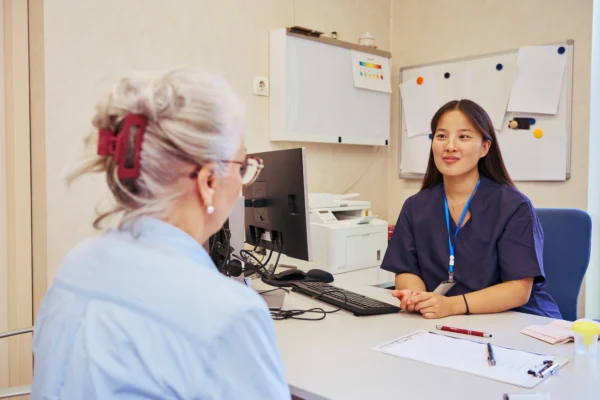Record numbers of people in the UK are unable to work because of long-term illness, creating personal hardship and costing the economy billions. Our latest research suggests that expanding NHS access to medical cannabis could help — reducing hospital admissions for those who are eligible and supporting people back into work.
Commissioned by Curaleaf Clinic and carried out by the Centre for Economics and Business Research (Cebr), the study combined economic modelling with polling of more than 3,000 UK adults, including 1,000 currently out of work due to illness.
The findings show that while private prescriptions have already delivered measurable benefits, wider NHS access could unlock much more — adding up to £13.3 billion to the UK economy over the next decade through improved health and increased workforce participation1. At the same time, many patients say they’ve exhausted traditional treatments3, and public backing for fairer access is strong4.
At a Glance: The Impact of Expanding NHS Access
The case for change is clear — a few key figures highlight the scale of the opportunity:
- 2.8m people currently out of work due to long-term illness 2
- £283m gross value add (GVA) already attributed to the UK economy through current access routes since 20181
- £4.5bn potential boost to the UK economy over the first five years through expanded NHS access1
- £13.3bn over 10 years1
- 28% fewer hospital admissions for eligible patients each year1
The Human Impact of Limited NHS Access
48%
say the treatments they’ve tried harm quality of life
40%
don’t realise that medical cannabis is a legal option to explore
62%
say they’ve exhausted traditional treatments
71%
of those directly affected support wider access if it helps
47%
say unemployment has harmed their wellbeing
56%
report loss of self-esteem
The Importance of Greater Access to Medical Cannabis
Behind every figure is someone living with the reality of chronic illness. The 62% who say they’ve exhausted traditional treatments aren’t just data points — they’re people who’ve lost the ability to work, care for family, or simply take part in daily life.
For many, wider NHS access could mean relief without the postcode lottery or the high cost of private care. When 71% of affected people say medical cannabis should be more widely available if it can help, they’re calling for fair, consistent access that could restore independence and dignity.
Expanding access wouldn’t only change individual lives — research suggests it could also ease long-term pressure on the NHS by reducing hospital admissions for eligible patients.
Beyond health, the economic case is clear: private prescriptions have already contributed an estimated £283 million to the UK economy since 2018. Meanwhile, NHS expansion could unlock up to £13.3 billion over the next decade, alongside a projected 28% reduction in hospital admissions for those who are eligible.
"Living with chronic pain took a huge toll on my physical and mental health. As someone independent and career-driven, not being able to get out of bed and go to work made me feel as if my identity was being stripped away. When I felt like I was at rock bottom and out of options, I discovered medical cannabis. I now have the ability to work, lead a team, and regain my independence. Expanding medical cannabis via the NHS would mean greater choice for more people, which can only be a good thing."

Expert Views
“Chronic illness doesn’t just affect health — it takes away independence and opportunities. Expanding access could give people more choice in their treatment and, where possible, hope that there may be a path back to everyday life. This analysis shows there is a way forward, but we need an NHS roadmap to make it happen.”

“Our analysis shows that appropriately prescribed medical cannabis can help people with chronic conditions return to work. Expanding NHS access would benefit patients while delivering significant productivity gains and cost savings to the UK economy.

What needs to happen
Curaleaf Clinic is calling for:
- Clear NHS prescribing pathways so more eligible patients can access treatment safely and consistently.
- Government-funded research to scale the evidence base and support responsible access where clinically appropriate.
- Training and Education on medical cannabis and the endocannabinoid system as standard in undergraduate medical curricula and postgraduate specialist training.
Conclusion
This research highlights a missed opportunity, which should be rectified at the earliest opportunity. Too many people living with long-term conditions feel they have exhausted every option, while access to legally available treatments remains inconsistent and unclear.
The findings suggest that expanding NHS access could ease pressure on the health system and help address the challenges of long-term illness and economic inactivity. Public backing is strong, and international examples show that safe, effective access can be delivered with the right frameworks in place.
The question is no longer if access should expand — but how quickly the UK can put the right systems in place.
Citations:
- Centre for Economics and Business Research economic analysis, commissioned by Curaleaf Clinic, 2025
- Based on the most recent Office for National Statistics figures (2023–2024), the number of individuals economically inactive due to longterm sickness hit a record high of 2.8 million.
- Research conducted on behalf of Curaleaf Clinic by Opinium Research between 23rd June and 2nd July 2025 among a bespoke sample of 1,000 UK adults out of work, or have taken time off work, because of a long-term illness.
- Research conducted on behalf of Curaleaf Clinic by Opinium Research between 20th June 2025 and 24th June 2025 among a nationally representative sample size of 2,000 UK adults









